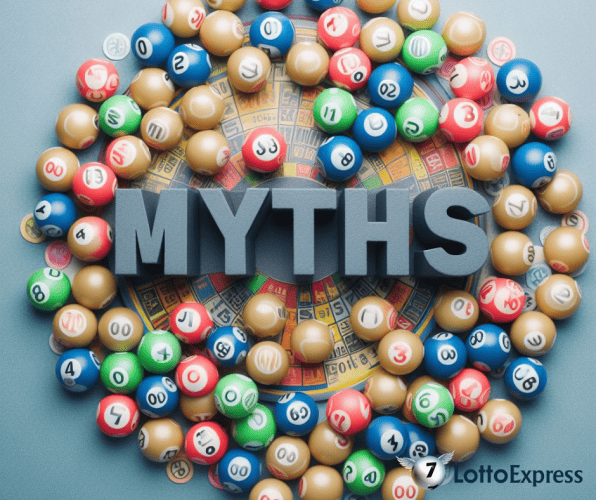Lottery myths abound in the world of chance, often clouding the judgment of hopeful players eager to strike it rich. Misconceptions about winning lottery strategies, lottery ticket odds, and even the luck of certain numbers can lead to misguided choices and a false sense of security. It’s essential to differentiate between lottery facts and these widespread myths about lotteries, as understanding the reality can significantly enhance your gaming experience. Sadly, playing under the influence of these fallacies can result in unnecessary frustration and financial loss. By debunking these common lottery misconceptions, we aim to empower players with the truth, enabling them to approach their lottery endeavors with informed optimism.
When venturing into the realm of lotteries, players often encounter a plethora of misleading beliefs that can skew their perceptions and decisions. These lottery fallacies not only misinform but can also discourage individuals from participating or lead them to adopt misguided beliefs about the likelihood of winning. Commonly held notions, such as the idea that specific numbers are inherently luckier or that smaller jackpots offer better odds, can significantly impact how people engage with their lottery experience. Exploring the intricacies behind these misconceptions is crucial for anyone looking to enjoy the unpredictability of chance games. Understanding the facts surrounding lotteries enhances both the enjoyment and the players’ ability to navigate this exciting world confidently.
Common Lottery Misconceptions: Separating Fact from Fiction
One of the prevalent lottery misconceptions is the notion that some lottery numbers are inherently luckier than others. This belief, often fueled by personal anecdotes and hearsay, suggests that certain combinations have a higher probability of winning based on past results. In reality, every number combination has an equal chance of being drawn in each drawing. Recognizing the endurance of randomness in these games is crucial; no pattern can predict outcomes. This understanding empowers players to focus on valid winning strategies instead of relying on fleeting luck.
Another myth revolves around the idea that participating in smaller jackpot lotteries guarantees better odds. While it may seem intuitive that fewer players vying for a smaller prize could enhance your chances, the odds are actually dictated by the total number of possible combinations, which typically remains unchanged, regardless of the jackpot size. This leads to a misunderstanding for many potential players, deterring them from participating in larger jackpots when the opposite might actually be more beneficial. Realizing that the thrill of playing should come from enjoyment rather than false beliefs about winning could enhance the whole lottery experience.
Winning Lottery Strategies: What Myths You Need to Ditch
Many players enter the lottery realm with a treasure trove of winning strategies learned through the grapevine, yet many of these strategies are based on myths about lotteries. For example, some believe that certain times of the year, or even specific days of the week, are luckier than others for purchasing tickets. This line of thinking can lead to a skewed perspective on randomness, where players allocate money at certain times hoping for enhanced luck. Instead, players should understand that the randomness built into lottery systems means that ticket purchasing time doesn’t influence winning odds whatsoever.
Additionally, some are under the impression that purchasing more tickets significantly increases their chances of winning. While it’s true that buying multiple tickets may raise the overall probability of winning, the incremental increase is often negligible compared to the potential financial loss. Understanding the lottery ticket odds means recognizing that each ticket purchase is an independent event. Thus, allocating funds wisely and participating within a budget is far more effective than chasing after unwarranted winning strategies.
Frequently Asked Questions
What are some common lottery myths that players should be aware of?
Players should be aware of several prevalent lottery myths, such as the belief that certain numbers are luckier than others or that smaller jackpots offer better odds. In reality, all lottery numbers are drawn randomly, and the odds of winning are consistent regardless of jackpot size. It’s essential to distinguish these lottery misconceptions to make informed decisions when playing.
Do winning lottery strategies really exist, or are they just myths?
Winning lottery strategies are largely considered myths. Many players believe that analyzing past winning numbers can lead to future success; however, lotteries operate on pure randomness. Every ticket has an equal chance of winning, and no specific strategy guarantees a win. Understanding lottery ticket odds and the nature of random draws helps players approach the game realistically.
| Myth | Explanation |
|---|---|
| Certain Numbers Are Luckier | This belief suggests some numbers have a higher chance of being drawn, which is false as all outcomes are random. |
| Online Lottery Sales Decrease Retail Sales | In fact, online sales often complement retail purchases, leading to increased revenue. |
| Smaller Jackpots Have Better Winning Odds | Winning odds are consistent regardless of jackpot size; they depend on the number of possible combinations. |
| Winning A Lottery Means Paying Huge Taxes | Taxes on winnings can vary widely and may not be as high as assumed depending on the jurisdiction. |
| Predicting Winning Numbers is Possible | Lottery draws are random; analyzing past results does not provide a reliable method for future predictions. |
Summary
Lottery myths can often cloud the judgment of potential players, as numerous unfounded beliefs circulate about how games work and how to optimize winning chances. Understanding these myths is essential for anyone looking to participate in lotteries. By debunking the misconceptions surrounding lotteries—such as the idea that certain numbers are luckier or that small jackpots offer better odds—players can make informed decisions. Embracing the reality that lotteries are random and without predictable patterns will not only help in setting realistic expectations but also enhance enjoyment in the playing experience. So, keeping these lottery myths in check is crucial as you venture into the world of lottery games.
